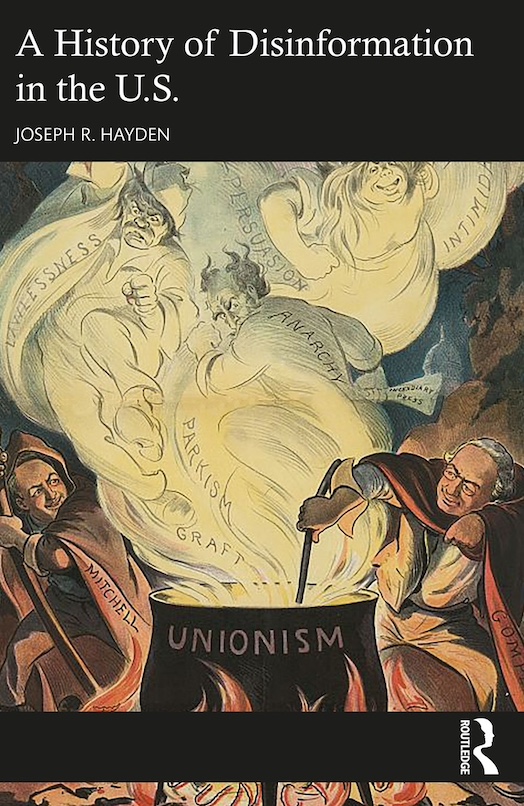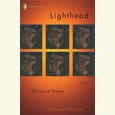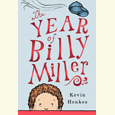Personal Stakes
Mark Greaney talks about his influences and the Gray Man
Ex-CIA operative Court Gentry’s most personal adventure explodes into bookstores this month with Midnight Black, the 14th book in the Gray Man series from Memphis author Mark Greaney. While Greaney’s books are renowned for their high-stakes political and military-style action, the latest novel is about one thing only: Gentry’s mission to rescue his longtime girlfriend Zoya from a Russian prison.
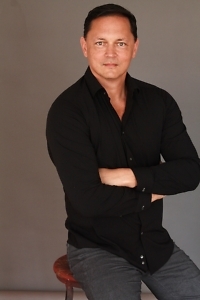
We talked to Greaney in December about the novel, his influences, and where the series may be heading. The conversation has been edited for length and clarity.
Chapter 16: Congratulations on another Gray Man book, Midnight Black. What do you think keeps your readers coming back to Court Gentry and the Gray Man?
Mark Greaney: I think it’s a combination of his strength and vulnerabilities. I learned [through] trial by fire writing these books what people will really respond to and what they like — and people like what I like as a reader, and that’s to lean into the emotions of the story and make it very personal about the characters. Yeah, there’s some really big geopolitical things going on here, but the heart and soul of it is these people who are living these lives and trying to make it through. If the hero was just this tough guy that just burned through all the bad guys and had no physical or psychological effects, I think the story would have gotten tired a long time ago.
Chapter 16: Hollywood’s catching on to that idea with James Bond. The Daniel Craig movies are more emotional than the old Roger Moore or Sean Connery movies.
Greaney: Absolutely. That was such a refreshing thing when Casino Royale came out and completely reimagined the entire storyline. I gleaned something from that, and from popular culture as well.
Chapter 16: And then you have your own personal story where you’ve recently married into a new family. How much are you drawing from your personal experiences and equating that with Court Gentry’s experiences?
Greaney: When Court started out, I was single and doing a lot of international travel. I kind of built Court up around this kind of lonely guy out in the field — well, he wasn’t particularly lonely, kind of a solo guy out in the field — and I was fantasizing about people trying to get me while I’m just sitting at a McDonald’s in Brussels. And that was the genesis of him, honestly. A big part of his character was stuff that I was living in my life. I know I draw things out of his relationship with Zoya and my interest with my wife. I don’t think Court’s ever going to have three step-kids and four dogs and live in Tennessee, but as a writer you have to glean everything that happens in your life as fodder for your creativity, for your writing.
Chapter 16: Is anyone in the family a Gray Man fan? Are they all readers?
Greaney: To some extent. My wife reads the books and my middle stepchild, who is 16, she’s read some of the books. She wants to be a movie director. She’s incredible with story. We watch movies and she’s able to pick apart subtle plot lines, foreshadowing and stuff that I’m not even seeing or paying close attention to. So that’s fun. I’ve never been around a bunch of people who are that fascinated by what I do. The cool thing for other people is I don’t have to go into an office. So, if my wife’s at the store and if she needs me to see how many onions we have, that’s the benefit of me being a writer. I can go to the main house and look in the fridge and see what it is we need.
Chapter 16: You put in a tremendous amount of research into your novels, from weapons to new technology and locations. What kind of research did you have to do for this novel?
Greaney: Well, it would have been difficult for the travel research because most of this book takes place inside of Russia. That is an absolute do not travel zone. I’ve gone to some places the State Department recommends you don’t go, but Russia is a completely different animal. Anyone who goes into Russia is subject to arrest on a trumped-up charge and used to trade for some spy of theirs in the West. So, I couldn’t go to Russia. But fortunately, when I wrote for Tom Clancy, I did spend several weeks in Moscow and St. Petersburg. I have over a thousand photographs and videos and notes and my recollections of what that was like. It was before the war started, and I gleaned from that. There’s a big scene that takes place in the subway station near Gorky Park and these were all places where I was and was fascinated about it when I was there. That didn’t make it into the Tom Clancy novel I was writing at the time, but it did make it into [Midnight Black]. So, I did my location research for this several years ago.
I’ve also been up in the Baltics, and part of this takes place in Latvia and through Estonia and Lithuania, so I was able to pull some stuff out of that. I’ve been to Finland, and part of it takes place there. So that research was not so hard to do because I had accidentally done it early. But I had to do an incredible amount of reading about the Russian penal system, Russian partisan groups, resistance groups and what’s going on in Ukraine, the very specifics about technology that’s being used in the war and things of that nature that kind of builds the story. Every day I would write for a few hours and research for a few hours. That’s how I spent 2024 basically.
Chapter 16: I appreciate as a reader that you have a directory of the different groups such as the GRU at the front of the book. It’s like an alphabet soup of all these groups and a who’s who.
Greaney: Thank you. Honestly, I’m doing that for me too. It helps to have a list of characters and agencies. I like to put all that at the beginning. There’s Ukrainian intelligence, Ukrainian Air Force, the three branches of Russian intelligence services, the multiple branches of Russian internal security shock troops…all these things that make it into the book. I don’t want people to be reading it like it’s some kind of manual, so I keep it very short with a little key at the beginning.
Chapter 16: We live in a time where we have a vastly changing political landscape. How do you write something that remains authentic when things are changing so quickly? Are you afraid that real-life politics or events might make your stories irrelevant or dated?
Greaney: I used to worry about that. I’m always trying to estimate where things might be more or less when the book comes out a year after I’m writing it. This book is the one book that’s very different. I did not expect the world to be the way that I wrote about it. I wanted it to be a more hopeful outlook than I expected to find, and I think that’s playing out. Who knows where we will be in February? But I wanted to show the Russian resistance being more robust and organized than they really are. I wanted to show a clear-cut Russian opposition figure, so I created a person who is an amalgamation of a couple different people. I wanted to show the West as having more resolve than we’ve had, vis a vis Russia. But this is the first of my 26 books where I’m not trying to prognosticate where we’re going to be. I’m just writing a story that hopefully people will be able to enjoy.
Chapter 16: How do you keep up with the changing technological landscape?
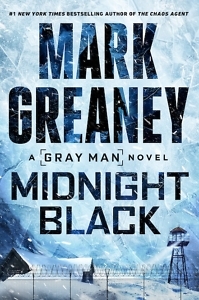 Greaney: I read a lot. I don’t ever want the story to be too much of a techno-thriller. Those were really popular and really successful 30 years ago, but I don’t think you could get away with that now. The new Tom Clancy/Jack Ryan books are still very good, but they’re not written the way they were written in 1989 or whenever. I think that’s for the best. But you do get your creative ideas by seeing what’s out there. I’m a very meat and potatoes guy that likes to look at the news and do a spin on it or look at things in the world and imagine where they could be, and that’s what I did. There have been leaps and bounds in technology and the available weapons from when I started writing the book last February. I was learning about it in March and April of last year and researching it more again in October. There’s a whole new vocabulary of things to learn about. You have to take a snapshot of it at a certain moment in time and make that your book.
Greaney: I read a lot. I don’t ever want the story to be too much of a techno-thriller. Those were really popular and really successful 30 years ago, but I don’t think you could get away with that now. The new Tom Clancy/Jack Ryan books are still very good, but they’re not written the way they were written in 1989 or whenever. I think that’s for the best. But you do get your creative ideas by seeing what’s out there. I’m a very meat and potatoes guy that likes to look at the news and do a spin on it or look at things in the world and imagine where they could be, and that’s what I did. There have been leaps and bounds in technology and the available weapons from when I started writing the book last February. I was learning about it in March and April of last year and researching it more again in October. There’s a whole new vocabulary of things to learn about. You have to take a snapshot of it at a certain moment in time and make that your book.
Chapter 16: I follow you on Facebook, and you recently posted about the film The Amateur and how it inspired you. What was it that struck a chord with you?
Greaney: I don’t know when it came out, maybe mid-80s, but that was when I was developing this interest in world affairs. At that time, I wasn’t even reading fiction. I definitely wasn’t reading thrillers, but I was reading The Economist and U.S. News and World Report and Time magazine and Newsweek. I come from a news family. My dad was the head of the news department at the NBC news affiliate here in Memphis where I live. And I just grew up around the news, so I was very locked into that. I saw the movie when it came out and I picked up the book — which was even better than the movie, as is often the case — and I really loved it.
Chapter 16: Going back to Midnight Black, on your dedication page you mention your editor, Tom Colgan. You mention that without him the Gray Man wouldn’t exist.
Greaney: My agent Scott Miller and editor Tom Colgan handed me a new life in my 40s. I can’t put it any other way. I had written this book called Goon Squad, and it had this character the Gray Man in it. My agent liked the character and said go write another book with this character. That went to nine publishers where it was rejected, and the 10th was Tom Colgan. Not only did Tom agree to publish it, but he really shepherded it along in the process. When it first came out, it was a little mass market paperback release, and it had a lot of push behind it with a lot of presales and publicity. The film rights sold right before the book came out, so that was helpful. Of the 26 books I’ve written, he’s been the editor on 24 of them. I hope he edits every one of them from here out.
Chapter 16: Do you have ideas for future novels with the Gray Man?
Greaney: I’m working on book 15 now. A lot is going to happen in the U.S., and some of it is going to happen in Northern Ireland. There will be a 16th book after that. I always have these things where [I think] one day I would like to write a Gray Man story about this. Everybody thinks it’s hard to come up with a macro idea, but that’s the easy part. Then it’s coming up with 150,000 words that aren’t like 150,000 words you’ve written in your 26 other books. I can come up with these kinds of cool big ideas where you just sort of write them on a napkin, but then sitting for eight months in the dark and trying to craft a story out of it with all the twists and turns you want and not repeating yourself, that’s what really gets tougher. Midnight Black was my 10th book in a row where I would go around saying this is the hardest book I’ve ever written. So that’s just the way it goes.
Chapter 16: Do you have an endgame in mind for the Gray Man? Like a final novel or something where he would end?
Greaney: I have two ideas, and it could be either one of them or neither. It is something I think about some, about how this will end, but I really don’t know for sure. I do find myself mulling that over more than I used to. At some point it’ll draw to a close, I’m sure.
Chapter 16: Or maybe it never ends. Maybe it goes on like Vince Flinn’s Mitch Rapp series.
Greaney: Yeah, or James Bond or whatever. You have to find the right person to carry on with it and that’s not something I’ve given any thought, just because I’ve got a few more of these in me. It’s a problem for another day. Before I wrote with Clancy, I would have probably poo-pooed at that idea a little bit, but once I’d written the first couple of Clancy books after he’d passed away and I would go on these book tours and see these people so happy to know that Jack Ryan was in new stories, the people were very appreciative. I thought I was going to get a lot of flak from people going like, You should let Jack Ryan rest, and it was exactly the opposite. If you put your character in the right hands where it wasn’t going to be damaged in some way, then there is something to letting it continue. Who knows if the Gray Man series is going to do that, but it’s interesting to think about.
Chapter 16: You’ve talked about how Tom Clancy impacted your writing. Do you ever think how your writing might impact another author someday in the same way?
Greaney: I hope so. I remember sitting in Tom Clancy’s office and he was talking about sitting in Frederick Forsyth’s office, and I was thinking wow, this is exactly the same. And then I thought, no, not really because this is me. I’m not Tom Clancy. But I do meet people at book signings who have really gotten into reading or really gotten into writing because they enjoy my books. And it’s accessible reading. I’ve had 5th-graders who have loved my books and 91-year-olds who enjoy my books, and that makes me really happy.
Chapter 16: If you could go back in time and deliver a message to your younger self about writing, whether it’s the craft or the business, what would it be?
Greaney: It’s nothing you could put on a bumper sticker, but I know exactly what it would be. I hate to say believe in yourself because that sounds a little thin, but just put your nose down and do the work and good things will happen to you. I decided I wanted to be a writer when I was 22, so it took exactly 20 years to get published. But that’s not 20 years of a hard slog, that’s 20 years of not really thinking it would happen, sort of the dream. I have friends my age, and they’ve been published since their 20s. I’m very happy with my career as it is, but it would have been cool if my parents had lived to see this. So, if I want to go back to my young self or someone that age I’d be like, it doesn’t have to happen tomorrow. Just every day you work on this and believe it, it’s going to get a little bit better.
There’s no reason I couldn’t get published by 30 instead of 42. It was just that I would put my book idea down for six months or a year and then I’d get up and work feverishly on it for a few days and do it again, and it was all a function of not thinking anything was ever going to come from it. If I had any inkling I had a shot at this when I was 22, I would have really busted my butt and tried, but I don’t think I really believed that good things could happen. I know 200 other authors now and we’re not special. We work hard and we’ve had some luck, and we create our own fortune to some degree. We’re not different from anybody else. It’s just a love of doing it and just plodding at it until something good happens.
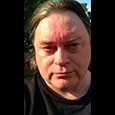
G. Robert Frazier is a former Middle Tennessee newspaper reporter and editor and has served as a script reader for screenwriting competitions at both the Austin Film Festival and the Nashville Film Festival. He lives in La Vergne.

